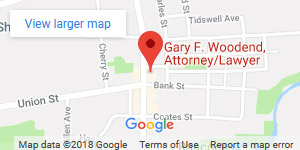
If you’ve decided that it’s time to put an effective estate plan in place, one of the first decisions you’ll have to make is what type of vehicle you’ll use to distribute your assets. While there are other ways to pass on some of your estate through the re-titling of assets or lifetime gifts the most common ways to allocate your net worth are through the use of wills or trusts. What’s the difference and what’s right for you?
What is a Will?
A will is a legally enforceable document that only goes into effect upon your death. You can use a will to accomplish a number of objectives designate specific beneficiaries for certain assets, identify who will receive the remainder of your estate, ensure that creditors are satisfied and taxes paid, and name guardians for any minor children living at the time of your death. A will is usually pretty simple to prepare and execute, and can usually be done fairly inexpensively. It can always be revised (during your lifetime and provided you are of sound mind), but you will, however, be required to have witnesses to verify the validity of the will. Any property in a trust will need to go through the probate process.
What is a Trust?
Unlike a will, a trust creates a separate legal entity with the right to own property. A trust can go into effect during your lifetime (what is known as an “inter vivos” trust) or upon your death (a “testamentary” trust). The trust document typically contains very specific instructions with respect to how property will be held, who will have access to the property, when it may be sold and when it may be distributed. There are no requirements that you have witnesses to execute a trust. You can revise the trust during your lifetime. Because the trust is a separate legal entity, the property held by the trust is no longer owned by you. It will stay in the trust upon your death and won’t have to go through probate. It’s generally a bit more expensive to prepare and execute a trust.
Contact Our Office
At the law offices of Gary F. Woodend, MBA, JD, we have protected the rights of hundreds of New Jersey residents in probate and estate matters. We have the knowledge, skill and experience to handle complex, multimillion dollar estates. To schedule a confidential consultation, call us at 609-654-5489 (toll-free at 888-336-8417) or contact our office online.




